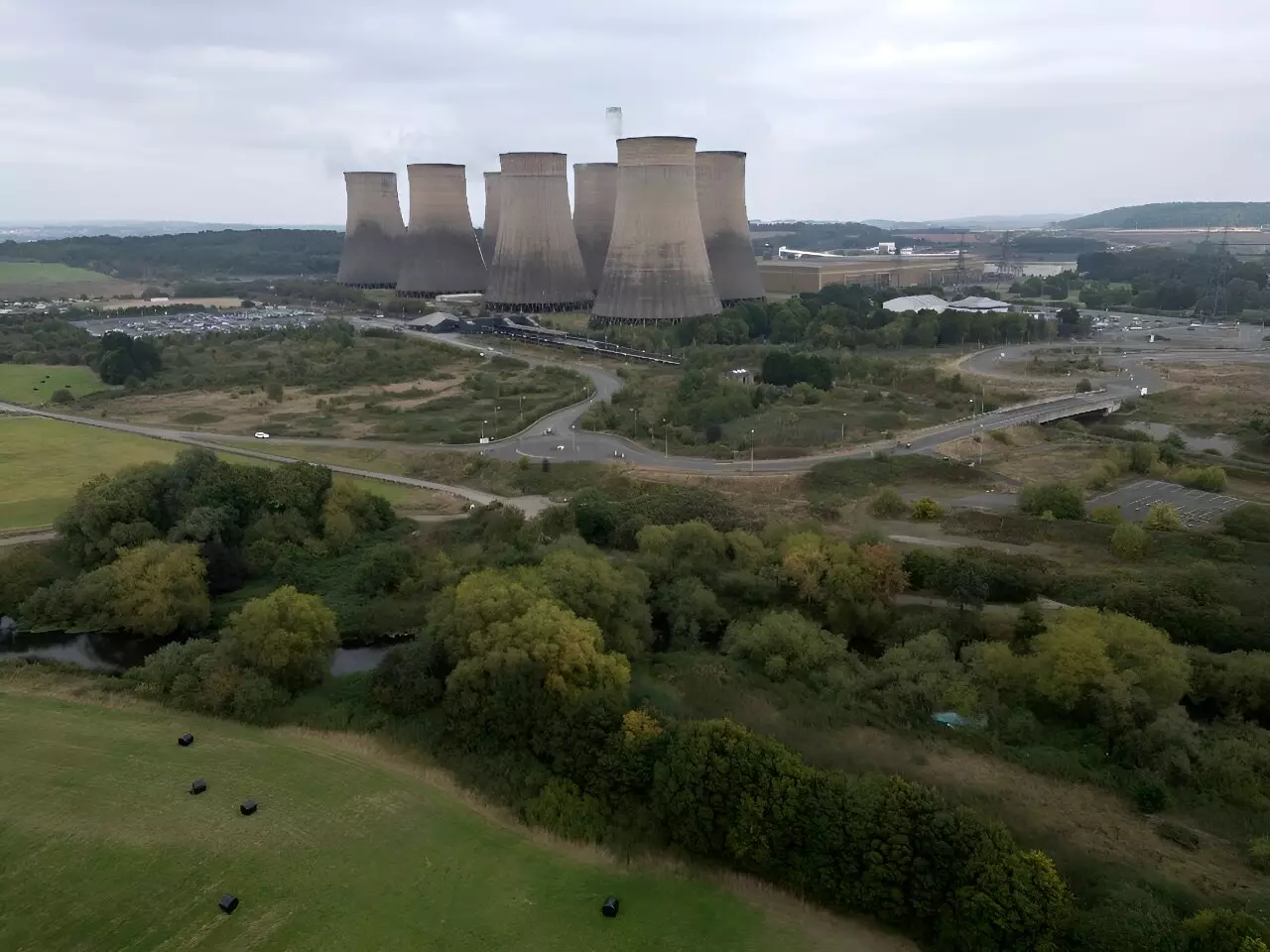The United Kingdom stands at the forefront of a global energy transition as it prepares for a momentous shift with the impending closure of its last coal-fired power station on Monday. This significant event not only marks the end of coal-based electricity in one of the world’s leading economies but also establishes Britain as the first G7 nation to eliminate reliance on this fossil fuel for power generation. The Ratcliffe-on-Soar power plant, a familiar fixture of the central England skyline for nearly six decades, will officially cease operation, reflecting the UK’s commitment to achieving a decarbonized electricity sector by 2030 and a net-zero carbon footprint by 2050.
The closure of Ratcliffe-on-Soar raises critical questions about the future of the workforce associated with coal power. Uniper, the owner of the facility, has announced a two-year decommissioning phase beginning this October, during which the transition will affect approximately 350 employees and contractors. While Uniper plans to redeploy some workers to different roles, others may face redundancy as the coal industry closes this chapter of history. The implications for the local economy are substantial, as these jobs, though traditional and rooted in the past, are being replaced by new opportunities in emerging sectors of renewable energy technology. The challenge lies in ensuring that the transition to these green jobs is swift and equitable, serving to empower rather than displace the workers affected.
Understanding the closure of Ratcliffe-on-Soar requires an appreciation for coal’s historical significance in Britain’s economic development. For over a century, coal was the backbone of the UK energy supply, driving the Industrial Revolution and transforming the nation into a major global power. At its peak, coal generated 70% of the country’s electrical energy in the 1980s. However, a confluence of factors led to a rapid decline in coal’s prominence in the national energy mix. By 2013, the contribution of coal had plummeted to just 38%, and subsequent years witnessed a further decline, with coal providing less than 1% of electricity as of last year.
As the nation grapples with the consequences of climate change, the narrative around coal has shifted dramatically. Environmental advocates, like Tony Bosworth from Friends of the Earth, have posited that coal now holds a place in history, symbolizing not only industrial achievement but also the environmental challenges that followed. The urgent priority now is to pivot towards renewable energy sources while phasing out natural gas, which still accounts for a significant portion of the electricity generation landscape.
The UK’s transition away from coal comes amidst a broader global dialogue concerning energy production and climate responsibility. While the UK has positioned itself as a leader in this transition, other G7 nations are gradually formulating their pathways for coal phase-out. Italy aims for a complete phase-out by next year, while countries like France, Canada, and Germany have set dates extending into the next decade. Meanwhile, Japan and the United States have yet to establish a concrete timeline for ending coal production. The UK’s strides serve as a poignant reminder of the importance of decisive action in combating climate change; it showcases the potential for developed nations to set precedents for others to follow.
In the wake of the last coal-fired power station’s closure, the subsequent investment in a “carbon-free technology and energy hub” at the Ratcliffe-on-Soar site reflects a crucial shift towards renewable energy. The recent UK Labour government has unveiled ambitious plans to bolster renewable resources, including offshore wind and nuclear power. Such initiatives are essential not only for meeting decarbonization targets but also for driving economic growth in green sectors.
The journey of energy transition is fraught with challenges, but the UK’s move towards a coal-free future heralds a new era in energy production. As the country closes this historical chapter, it must strive to cultivate innovative solutions that harness its vast renewable energy potential while ensuring a just transition for all affected workers and communities. The choices made today will ultimately shape the character of energy in the coming decades and define the legacy left for future generations.


Leave a Reply